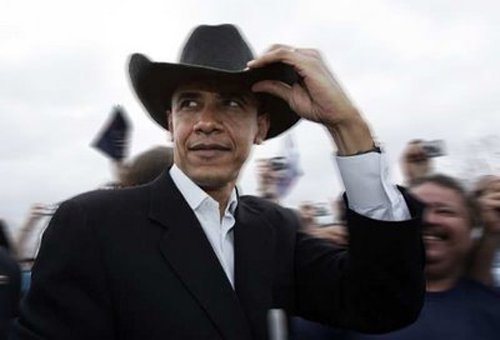As our unhealthy fixation on Rand Paul continues to grow, we at Combat! blog are impelled to consider the other prong of his narrative prod: authenticity. Paul and his ilk are, by their own avowal and by media announcement, outsiders—folks who feel the same way you do about the shysters in Washington because, like you, they watch ’em from afar. It’s a reform year. Two big stories dominate the news: 1) the entire country being economically, politically and environmentally fucked plus we’re losing two wars, and 2) people who cannot necessarily articulate the specific elements of #1 blaming the dang government. The trick, if you want to get elected in 2010, is to make yourself part of story #2. Hence the popularity of Rand Paul and his father, Ron, whose views are extreme but whose personae are paradoxically that of the everyman. As Meghan McCain put it, “I can’t help but interpret the congressman’s cult-like, libertarian-leaning following as yet another indicator of a growing resentment of all people incumbent and in power in Washington.”
Meghan McCain is retarded. She’s referring to Ron Paul in her quote, not Rand, and she attributes his following to “resentment of all people incumbent and in power in Washington” despite the fact that Ron Paul has been in congress for a total of 20 years. Perhaps, though, McCain is retarded like a fox. She uses the word “congressman” in her sentence, so it’s hard to argue she forgot he was already in Washington. Perhaps she simply sees no conflict between being a sitting congressman and being an anti-incumbent outsider. Perhaps she can simultaneously hold two contradictory thoughts in her head, or at least her mouth. In that way she resembles Ben Smith at Politico, who worries that Rand Paul might be part of “a long—and often unhappy—line of outsiders who make it to power, often to become part of a system that finds ways to reject them.”
The sheer epistemic bafflement of that last clause—the outsiders are absorbed by the power of the system, only to find that the system refuses to incorporate them?—is the inverse of Rand Paul’s contradictory image. Smith’s headline calls Rand “a true outsider,” which is a hard claim to make about a man whose father is a US Representative. Nor is his status as a homegrown maverick bolstered by the financial data from his campaign, which has thus far pulled in 23% of its donations from Kentucky and 77% from out of state. (Rand’s Democratic opponent, Jack Conway, has drawn 75% of his campaign contributions from within Kentucky.) Yet the media’s dominant narrative is that Rand’s victory in the primary—to say nothing of his predicted triumph in November—proves that the country is gripped by anti-Washington sentiment.
The contradiction inherent in that idea—congressman’s son wins primary with out-of-state money, signaling that America is sick of politics as usual—is as glaring as it is unstated. It’s the same contradiction that lies at the heart of the Tea Party, a grassroots expression of anti-Washington sentiment whose emergence just happens to have been organized by a former House Majority Leader’s lobbying group. The Tea Party is an outsider’s movement the way the Hitler Youth was a community service club. Yet that hasn’t prevented them from making “throw the rascals out!” the singular message of political discourse today.
Part of the problem is that the rascals, unlike the mavericks, refuse to identify themselves. In a country where siting congressmen and their sons aren’t insiders, who is? “My gosh,” Orrin Hatch told reporters last week, “these people in Washington are running the country right into the ground.” Hatch has been the Senator from Utah for the last 34 years. The question of what makes an insider is evidently not settled by presence in Washington or blood relation to elected officials. Perhaps, unless you’re making a campaign speech or covering it for CNN, the idea has no meaning at all.
Whoever this country’s political outsiders are, they are not likely to come to our attention by appearing on television or winning the Kentucky Republican primary. Those are the means by which we locate flatterers—people who are willing to pay us whatever compliments might get them elected, and who have learned that the highest compliment is to claim that they are just like us. Rand Paul may hate the Washington types he’s running against, just like you, but it’s not for the same reason. Rand Paul hates Jack Conway because he’s the last man standing between Rand Paul and legislative power. Once he’s out of the way, how many people will still be standing between you and Rand Paul?





the prez looks snappy even in cowboy gear. were you planning to connect that somehow? is the prez, in your view, pandering to down-home fashionistas?